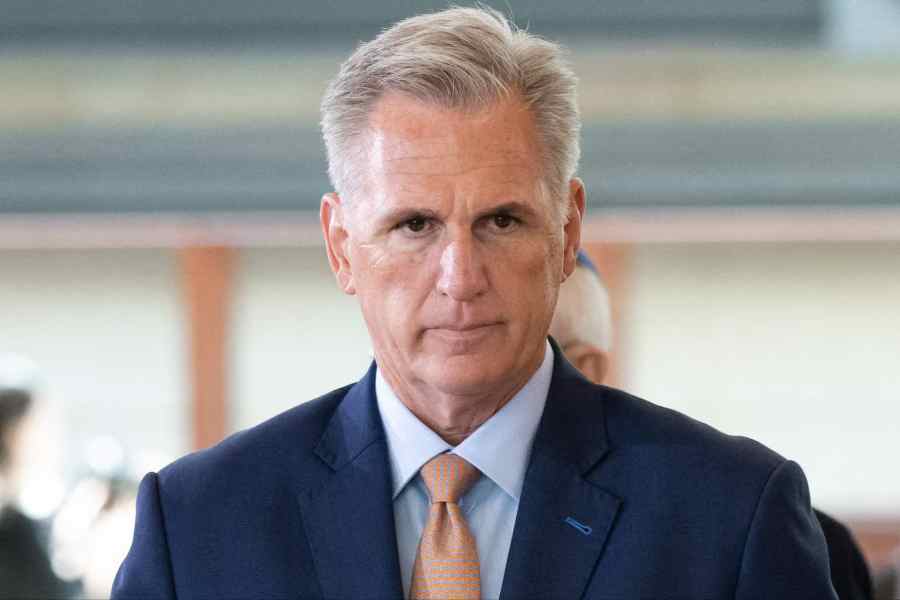White House and Republican negotiators made some progress in late-night talks about raising the government's $31.4 trillion debt ceiling, top congressional Republican Kevin McCarthy told reporters on Thursday.
Negotiations are going down to the wire as the Treasury Department has warned the government could run short of funds to cover all its expenses as soon as June 1, which without a deal could trigger an economically catastrophic default.
Democratic President Joe Biden and House of Representatives Speaker McCarthy are at odds over spending, taxes and work requirements for anti-poverty programs. But both sides say they believe they can find common ground after hours-long discussions by their negotiating teams on Wednesday that they characterized as productive.
"We worked well past midnight last night," McCarthy told reporters. "I thought we made some progress. There's still some outstanding issues and I've directed our teams to work 24/7 to try to solve this problem."
Representative Kevin Hern, who leads the powerful Republican Study Committee, told Reuters a deal was likely by Friday afternoon."
Even as Republicans tout progress, McCarthy is preparing to possibly let lawmakers leave Washington on Thursday for a week-long holiday recess, with the proviso that they need to be ready to return for a vote. The Senate is currently out but on similar orders to be ready to return.
Time is running short. The Treasury Department says the United States could run out of money to pay its bills as soon as June 1, seven days from now, if the debt ceiling is not raised. A U.S. default could upend global financial markets and push the United States into recession.
But Treasury's forecast is not iron-clad and some private sector analysts reckon the government could go another week without defaulting, which has led some hardliners in McCarthy's caucus to dismiss the significance of the June 1 deadline.
Asked if Treasury could meet its debt obligations after June 1 without a debt ceiling hike, McCarthy said: "There's always money coming in. But I leave that up to the Treasury secretary. I take June 1 as the deadline, always have."
Credit rating agency DBRS Morningstar put the United States on review for a possible downgrade on Thursday, echoing similar warnings by Fitch, Moody's and Scope Ratings. Another agency, S&P Global, downgraded U.S. debt following a similar debt-ceiling standoff in 2011.
The months-long standoff has spooked Wall Street, weighing on U.S. stocks and pushing the nation's cost of borrowing higher. The yield on U.S. Treasury bills maturing in early June climbed in early Thursday trading, in a sign of investor unease.
Congress will need several days to pass any agreement through the Republican-controlled House and the Democratic-controlled Senate. Lawmakers regularly need to raise the self-imposed debt limit to cover the cost of spending and tax cuts they have already approved.
House lawmakers will get three days to read any debt-ceiling bill before they have to vote on it. In the Senate, Republican Mike Lee said he would block a quick vote if he did not like the deal, which could delay action for days and could push final passage well past June 1.
McCarthy has insisted that any deal must cut discretionary spending next year and cap spending growth in the years to come, to slow the growth of the U.S. debt, now equal to the annual output of the economy.
Biden has offered to freeze spending at current levels next year and proposed several tax increases to help curb the debt.
Lawmakers on the right and left flanks are growing frustrated by signs of compromise. Republican Representative Chip Roy, a member of the hard-right Freedom Caucus, has insisted that any deal must include the sharp spending cuts they passed last month.
Some Democrats, meanwhile, worry that Biden is too eager to find common ground with Republicans who are threatening the health of the U.S. economy.
"They are looking to waste time, play games and make sure we default because they think that somehow that is going to be a political advantage," Democratic Representative Ilhan Omar said at a news conference on Wednesday.











